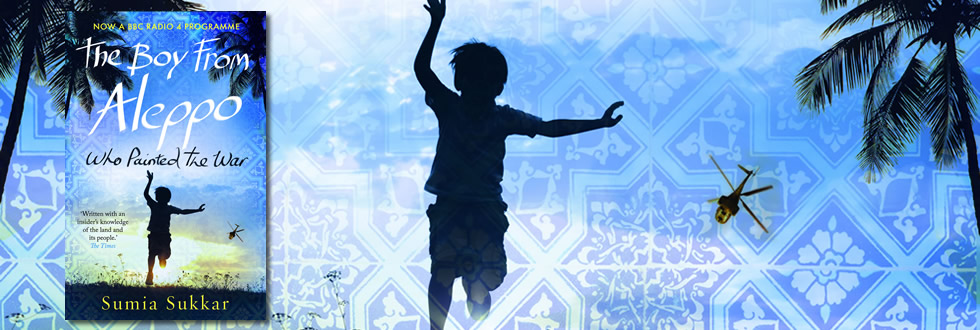B7 Media secures film and television rights to Sumia Sukkar’s acclaimed novel of Syrian conflict
London, 6 July 2015: The film and television rights to The Boy from Aleppo Who Painted the War, the debut novel by Sumia Sukkar set during the outbreak of the Syrian conflict, have been acquired by B7 Media.
B7 Media has acquired an option to develop a motion picture or television serial based on Sumia Sukkar’s acclaimed debut novel of the Syrian conflict, The Boy from Aleppo Who Painted the War.
Following B7’s critically acclaimed radio dramatisation of the novel for BBC Radio 4 in 2014, featuring Farshid Rokey, this new film adaptation will look to explore this powerful and intimate drama in a widescreen setting. Simon Moorhead (Mirrormask, Luna) and Andrew Mark Sewell (Mrs. Palfrey at the Claremont, Exit Thread) will produce.
Published by Eyewear, London, the novel was an immediate critical success on publication. The story gained a whole new audience when B7 Media adapted it into a successful Saturday Drama for BBC Radio 4, directed by Fiona McAlpine, produced by Andrew Mark Sewell and Patrick Chapman and dramatised for radio by Richard Kurti and Bev Doyle. Farshid Rokey, Noof Ousellam and Jalleh Alizadeh led an outstanding young cast in this moving realisation of a heartrending story.
Producer Andrew Mark Sewell says of the project: “The immediacy and impact of this drama bear witness to the horror of war, and the triumph of the human spirit over almost unbearable adversity. When our development producer, Patrick Chapman, first brought Sumia’s novel to my attention, I was struck by the intimate and powerful voice Sumia brought to the story.”
Written when she was a mere 21 years old, Sumia Sukkar is the youngest female British Muslim to have had a novel published in the UK: “Writing my timely novel was a way for me to express my grief towards the tragedies of what’s happening in my country. Readers will find it interesting to experience the traumatising events of war through the eyes of an innocent young autistic boy who has lived his whole life completely dependent on his family and then having to be separated from them. It contains a blend of political events, emotional drive and Arabian tradition.”








